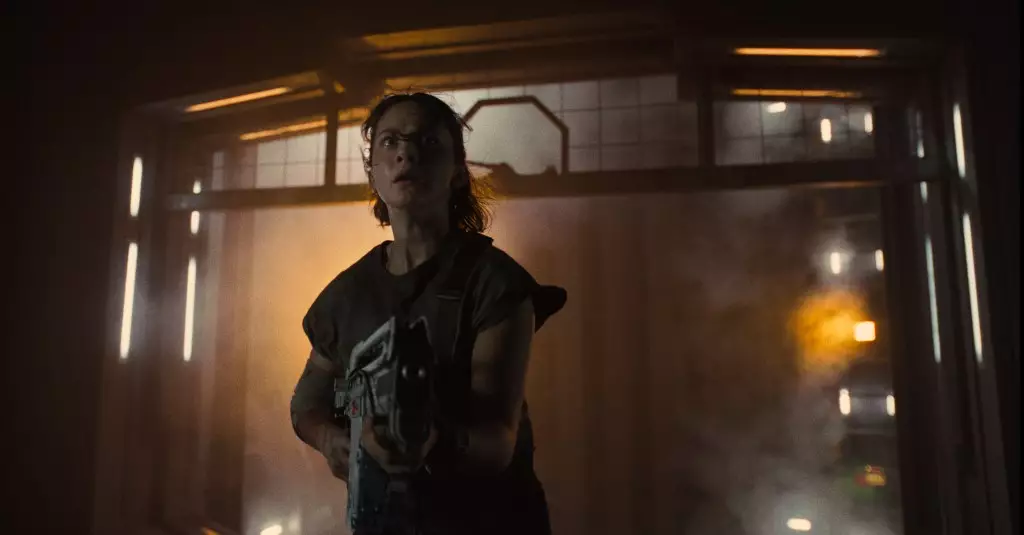The universe of “Alien” has transcended time, continually captivating audiences since the original film’s debut in 1979. With “Alien: Romulus,” directed by Fede Alvarez, the franchise embarks on a fresh narrative journey while paying homage to its rich legacy. This exploration of familial ties, identity, and survival juxtaposed with horror elements aims to resonate with both longstanding fans and newcomers alike.
The presentation of “Alien: Romulus” at Comic-Con this year marked a significant moment not only for the film but for 20th Century Studios and Disney at large. The atmosphere in Hall H was electric as Alvarez engaged the audience, captivating them with exclusive footage; a yelp of excitement reverberated through the audience as viewers got their first taste of this long-awaited installment. It signals a fresh start under Disney’s stewardship following the Fox acquisition, providing an opportunity to rejuvenate a beloved yet intermittently inconsistent franchise.
Set between Ridley Scott’s seminal work and James Cameron’s action-packed sequel, “Aliens,” “Romulus” aims to strike a balance between nostalgia and innovation. Alvarez’s approach of featuring a cast of fresh faces underscores a deliberate artistic choice to elevate the stakes, invoking uncertainty and tension — choices that align perfectly with the franchise’s legendary uncertainty surrounding character survival.
The sequences showcased during the Comic-Con panel displayed not only the film’s visual flair but also its commitment to returning to horror roots. Scenes featuring Cailee Spaeny and her crew navigating a red-lit alien laboratory bring back the claustrophobic, suspenseful tension that fans cherished in the original films. The emergence of terrifying baby aliens not only references iconic scenes from previous films but also reformulates them for a new context, creating a gripping sense of dread.
Alvarez’s decision to shoot the film chronologically was noteworthy. This methodology allows actors to develop their characters more organically, deepening emotional resonance amidst the horror. The on-screen relationships formed by the cast are a focal point of “Romulus,” with the tension stemming not only from external alien threats but also from the internal conflicts among the characters. This characteristic adds layers to the story’s suspense and raises questions about loyalty, sacrifice, and the bonds of duty among family members.
One of the film’s central themes is the exploration of siblinghood, a narrative avenue that has often been overlooked in previous installments. The concept of deep, familial connections is painted against the backdrop of an alien invasion, reflecting real-world complexities of love, sacrifice, and moral dilemmas in extreme circumstances. Alvarez articulated this new thematic element during the panel session, mentioning how “Romulus” diverges from earlier works by focusing on nurturing relationships and the ultimate tests of loyalty they undergo when faced with existential threats.
This exploration of human connection is essential; it introduces the notion that loss is profoundly felt when it involves loved ones, making the stakes palpably higher. The psychosexual themes interwoven within these relationships offer an intriguing layer to the narrative, pushing the boundaries of traditional horror storytelling.
As “Alien: Romulus” edges closer to its release, the anticipation continues to build, shaped by its premise and the vibrant discussions at Comic-Con. With a skilled director at the helm, who understands the foundational elements that made the franchise iconic while simultaneously willing to explore new territory, there is a tangible sense of hope surrounding this installment. Alvarez’s storytelling choices reflect a desire to innovate while respecting the legacy of the series.
In summation, “Alien: Romulus” has the potential to breathe new life into a legendary franchise, ensuring its relevance in today’s cinematic landscape. As the narrative unfolds, audiences will undoubtedly be eager to witness how familial bonds manifest amidst the chaos—a theme every viewer can relate to at its core. The film’s ability to marry horror with humanity may not only redefine the franchise but could also resonate deeply with audiences worldwide.


Leave a Reply